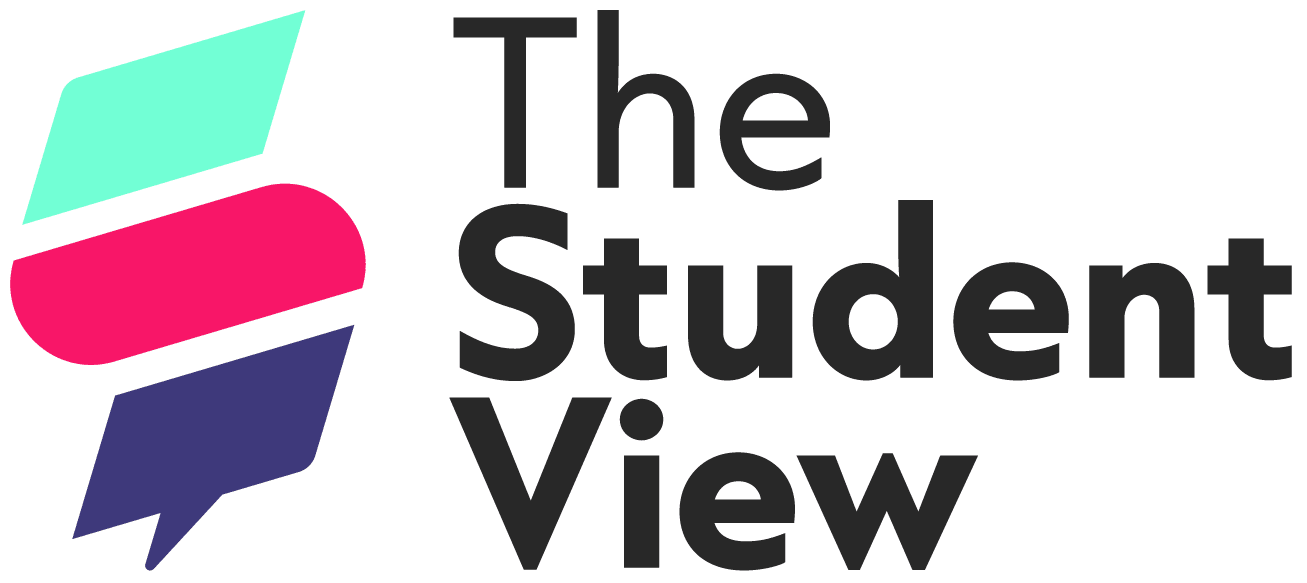Written by Ronelle Sikhosana

If you know me personally, you’d know that I’m someone full of ideas. I can easily envision an
entire concept and have a clear vision for its development over the next five years and beyond.
Often, in conversations with friends and peers, they inquire about the progress of my once
passionately discussed ideas. Unfortunately, my response tends to be that I lack the necessary
funds to pursue them. But if I’m being honest, that’s not entirely true. Fear and a lack of
knowledge have been the greatest obstacles preventing me from pursuing these projects.
However, I have recently become acquainted with the fascinating world of funding.
Merely knowing that something exists is never enough for me. I crave a deeper understanding
of how things work, who they benefit, their shortcomings, and their origins. Through this
exploration, I’ve come to realise that the world of entrepreneurship is plagued by many of the
systemic failures we witness in broader society. The failures that have particularly captivated my
attention are the challenges faced by underrepresented groups, specifically in funding women
and people of colour, especially those from the black community. I must acknowledge that my
interest in these failures is influenced by my personal experiences as a black woman originally
from Zimbabwe. So, please excuse any bias that may come through in my perspective.
Undertaking this article is akin to confronting an iceberg armed with only a toothpick.
Nevertheless, it is better to attempt to say something than to remain silent. My primary goal in
this piece is to shed light on the disparities and challenges that underrepresented groups face in
the realm of entrepreneurship.
Recently, I had the incredible opportunity to attend an event hosted by the Financial Times titled
“Closing the Funding Gap for Women Entrepreneurs.” The panel featured influential women,
including Lamia Kamal-Chaoui, Director at the OECD Centre for Entrepreneurship, SMEs,
Regions, and Cities; Elena Mayer-Besting, Programme Manager at the United Nations
Economic and Social Commission for Asia and the Pacific (ESCAP); Goksu Aslan, Instructor of
Economics at NYU Abu Dhabi; and Annica Witschard, CEO at Home Credit Vietnam.
Although the discussion was insightful and thought-provoking, it was disheartening to listen to
the persistent failures of the funding landscape for women entrepreneurs in both the global
south and west.
Outdated gender stereotypes, pretty privilege, limited access to finance and knowledge, and
inadequate and infantilising mentorship are just a few factors influencing biassed investment
and lending practices that hinder female entrepreneurship.
When we examine the entrepreneurial landscape, gender disparities, and funding gaps, it
becomes abundantly clear that women-owned businesses face significant challenges.
Shockingly, the International Finance Corporation (IFC) estimates a staggering $300 billion
financing gap for women-owned small businesses worldwide. Moreover, over 70% of
women-led SMEs lack access to sufficient financial services or have no access at all.
Attentively listening to this panel, it became evident that addressing gender disparities in
entrepreneurship and access to funding requires a nuanced understanding of the issue. While
the specific challenges may vary across geographical locations, the consensus remains that it is
a pervasive issue both in the global north and the global south. To effectively tackle these
inequalities, it is crucial to focus on three key areas of analysis: entrepreneurship and ideas,
knowledge and education, and access to finance.
Typically women in the global south bear the responsibility of managing their families’ finances
and anecdotally possess strong budgeting skills. However, they may lack experience in handling
contracts, fees, long-term planning, and other essential aspects of running a business. It is vital
to provide women entrepreneurs with the necessary knowledge and confidence to navigate
these areas effectively. By equipping them with financial literacy skills, they can transition their
businesses from informal, day-to-day operations to more sustainable and growth-oriented
enterprises.
Access to financial services is another significant hurdle faced by women entrepreneurs in low
to middle income economies , for example countries like Vietnam, where a large portion of the
population remains underbanked or unbanked. Traditional banking institutions often fail to cater
to the specific needs of women, perceiving them as less profitable or risky. Here,
technology-driven financial service providers can play a pivotal role in democratising access to
funding and empowering women entrepreneurs. By leveraging innovative approaches, these
tech players can bridge the gap and offer tailored financial solutions that cater to the unique
circumstances and aspirations of women-led businesses.
Studies indicate that women tend to be less risk-averse compared to their male counterparts,
making them ideal candidates for sustainable and responsible entrepreneurship. However, to
foster their growth, it is essential to create an enabling environment that encourages women to
take calculated risks , encourage increased levels of confidence and invest in their businesses
for the long term. By building a support system that provides mentorship, networking
opportunities, and access to capital, women entrepreneurs can navigate challenges with greater
confidence and unlock their full potential.
When examining OECD countries, it becomes apparent that the challenges faced by women in
entrepreneurship are prevalent across both advanced and middle-income economies. Key
statistics reveal the existing disparities:
- Lack of Female Leadership: Women hold only 37% of leadership positions in OECD
countries, with fewer than 1 in 10 companies having a female CEO in the EU and the
US. - Gender Gap in Business Creation: Women are 30% less likely to start a business
compared to men across the OECD, and in the EU, there are twice as many male
entrepreneurs as female entrepreneurs. - Missed Entrepreneurial Potential: Studies suggest that if women had equal participation
in business creation between the ages of 30 and 49, there could be almost 26 million
more entrepreneurs. The COVID-19 pandemic further exacerbated the challenges, with
women having a 50% higher likelihood of business closure due to operating in sectors
disproportionately impacted by lockdown measures. - Barriers to Accessing Resources: Women face challenges in accessing entrepreneurial
networks, resources, advice, and foreign markets. Men-led firms are twice as likely to
engage in international sales. - Funding Disparities: Women-owned businesses in OECD countries receive only 2% of
venture capital funding. When they do receive funding, it is typically around 70% less
than what men receive. Startups are particularly affected by negative gender stereotypes
and lower confidence levels among women entrepreneurs.
These striking disparities underscore the urgent need to address the funding gaps and barriers
hindering women entrepreneurs. It is imperative that concerted efforts be made to level the
playing field, empower women, and foster an inclusive entrepreneurial ecosystem. Through
comprehensive strategies and targeted support, we can create an environment where women
entrepreneurs thrive, closing the funding gaps and propelling economic growth in OECD
countries.
Harnessing the power of data can significantly enhance the access to funding for women
entrepreneurs. Studies have indicated that businesses led by women are 16% more likely to
secure funding when objective data is utilised in the decision-making process. By leveraging
data analytics, investment firms and venture capital firms can gain valuable insights into the
performance and potential of women-led enterprises, enabling them to make informed
investment decisions. This data-driven approach not only increases the likelihood of securing
funding but also instils confidence in women entrepreneurs, motivating them to pursue their
entrepreneurial aspirations with conviction.
The assessment process for funding allocation must undergo a transformation to ensure
objectivity and fairness. Traditional evaluation methods often suffer from inherent biases, which
hinder the progress of women entrepreneurs. By embracing data-driven approaches, investors
and funding organisations can reduce subjective judgments and rely on empirical evidence and
performance metrics to make funding decisions. A systematic and standardised evaluation
process that considers key business indicators, market potential, and growth projections can
help identify deserving women-led ventures and increase their chances of securing funding.
Angel investing, fueled by the growth of angel networks and national angel chapters, holds
significant potential to benefit women entrepreneurs and address the funding gaps they face.
Organisations like The Epic Collective are actively working to create a supportive ecosystem for
underrepresented founders, including women. Angel investors bring more than just financial
resources to the table; they offer expertise, industry connections, and mentorship that can be
invaluable to women entrepreneurs navigating the business landscape. By leveraging angel
networks, women entrepreneurs gain access to a broader pool of potential investors who
understand their unique challenges and can provide the necessary support to propel their
ventures forward.
In the pursuit of a more inclusive and equitable entrepreneurial landscape, addressing the
funding gaps for women entrepreneurs is paramount. The evidence is clear: disparities exist,
opportunities are missed, and potential remains untapped. However, there is hope. By
embracing data-driven approaches, transforming evaluation processes, and fostering an
enabling environment, we can dismantle barriers and unlock the full potential of women-led
businesses.
Links that were useful –
https://www.adaventures.com/#our-mission
https://diversity.vc
https://www.capalona.co.uk/blog/support-for-black-owned-business/
https://www.british-business-bank.co.uk/research-alone-together/
https://www.theguardian.com/business/2023/mar/12/venture-capital-funding-racial-bias
https://www.ft.com/content/c74986fd-74d3-4a2a-a2d9-10bfee09fd11
https://sifted.eu/articles/black-entrepreneurs-vc-funding
https://hbr.org/2020/01/how-the-vc-pitch-process-is-failing-female-entrepreneurs
https://wearetechwomen.com/vc-funding-still-tough-for-female-startups/
https://www.thebusinessdesk.com/northwest/news/2105009-access-to-funding-is-biggest-barrier
-for-black-entrepreneurs
https://www.forbes.com/sites/garydrenik/2022/12/22/why-gen-z-is-our-next-wave-of-business-ow
ners/?sh=ff803b9789cd
https://www.sbs.ox.ac.uk/oxford-answers/counting-black-business
https://www.ifc.org/wps/wcm/connect/news_ext_content/ifc_external_corporate_site/news+and+
events/news/bridging-gender-gap#:~:text=IFC%20has%20estimated%20that%20worldwide,no
%20access%20to%20financial%20services.
